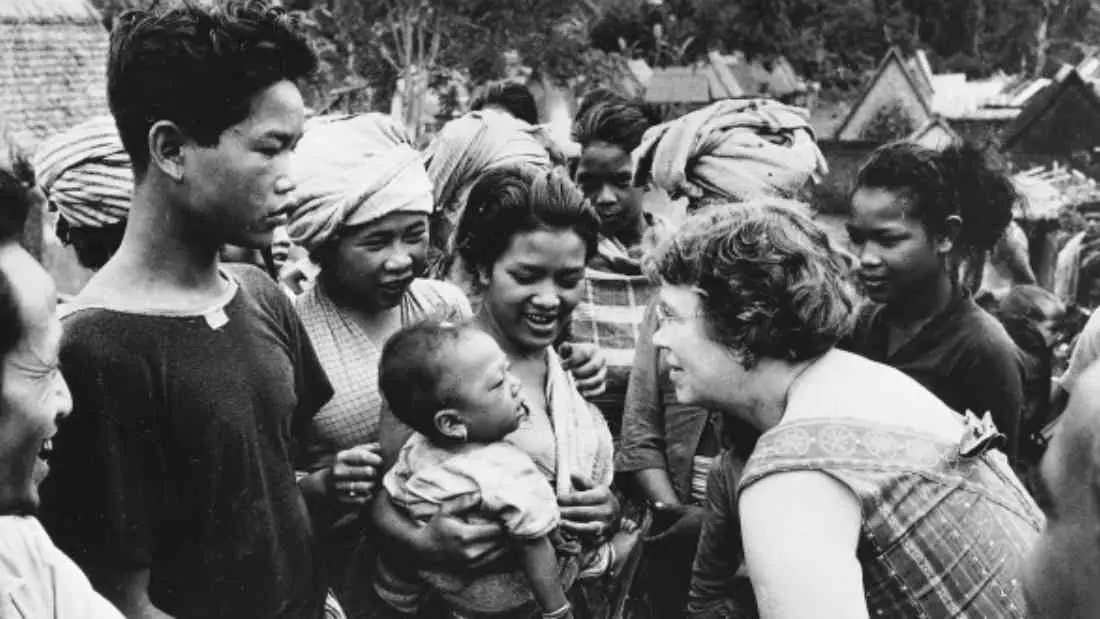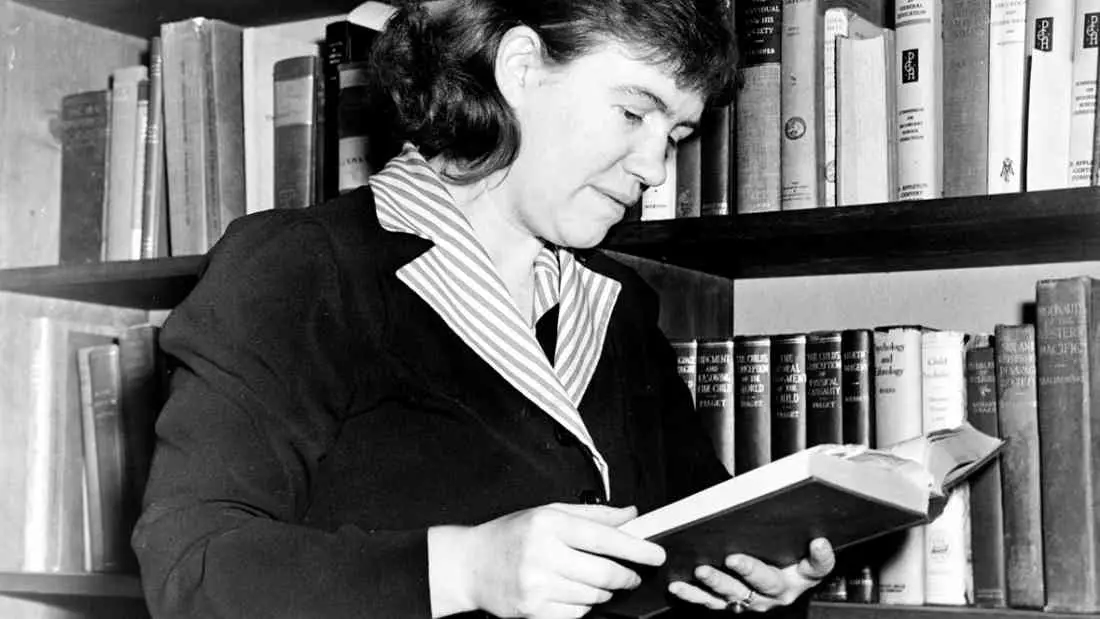Margaret Mead, a renowned cultural anthropologist, was a woman of wisdom and insight. Known for her works in Samoa and New Guinea, she brought forth a fresh perspective on cultural relativism and feminism. Today, we delve into some of most empowering quotes from Margaret Mead that continue to resonate with us.
Margaret Mead – Quick Bio
Margaret Mead, born on December 16, 1901, in Philadelphia, Pennsylvania, is considered one of the most influential anthropologists of the 20th century. Her work, which spanned multiple decades and continents, has had a significant impact on our understanding of culture, society, and human behavior.
Mead’s journey into anthropology began at Barnard College, where she earned her bachelor’s degree in 1923. She then pursued her Ph.D. at Columbia University under the tutelage of renowned anthropologists Franz Boas and Ruth Benedict.
Her first fieldwork, conducted in Samoa in 1925-26, resulted in her best-selling book, “Coming of Age in Samoa” (1928). The book challenged Western assumptions about adolescence by suggesting that the emotional turmoil associated with this phase was not universal but rather a product of cultural factors.
Mead continued her research in New Guinea, exploring topics such as gender roles and child-rearing practices. Her observations led to groundbreaking insights into how culture influences personality development.
Beyond her academic contributions, Mead was a public intellectual who used her platform to engage with broader societal issues. She wrote extensively for popular magazines, appeared on radio and television, and served as a curator at the American Museum of Natural History.
A firm believer in cultural relativism, Mead advocated for greater tolerance and understanding of cultural differences. She also contributed significantly to feminist thought, challenging traditional gender norms and advocating for women’s rights.
Margaret Mead passed away on November 15, 1978, but her legacy continues to resonate. Her insightful observations and fearless questioning of societal norms have left an indelible mark on anthropology and continue to inspire generations of scholars and thinkers.

Tomste1808, CC BY-SA 4.0 https://creativecommons.org/licenses/by-sa/4.0, via Wikimedia Commons
Influential Quotes From Margaret Mead
Margaret Mead on Anthropology
“Anthropology demands the open-mindedness with which one must look and listen, record in astonishment and wonder at that which one would not have been able to guess.”
Margaret Mead
This quote from Margaret Mead serves as a powerful reminder that every culture has its unique complexities and nuances that can only be fully appreciated when we let go of preconceived notions and biases.
In our increasingly interconnected but diverse world, Margaret Mead’s words resonate more than ever.
Anthropology, as Mead so eloquently highlights, calls for an unwavering sense of open-mindedness. It is a discipline that requires the observer to look and listen with a receptive mind, recording findings that are often unexpected and unanticipated.
Mead’s perspective challenges us to broaden our horizons, to step out of our comfort zones, and to approach the unknown with curiosity rather than apprehension.

Quotes from Margaret Mead on Anthropological Fieldwork
“The way to do fieldwork is never to come up for air until it is all over.”
Margaret Mead
This quote from Margaret Mead encapsulates her approach to anthropology and the intensity required when conducting fieldwork.
In essence, Mead posits that anthropologists must immerse themselves completely in the cultures they are studying.
It’s not simply about observing from the sidelines, but about becoming a part of the community, understanding their customs, language, behaviors, and belief systems from within.
This deep dive into another culture demands dedication, persistence, and a willingness to set aside one’s own cultural biases.
The analogy of not coming up for air until it’s all over suggests a kind of intellectual and emotional submersion that is both exhaustive and immersive.
It implies that the researcher should be so engrossed in the study that they almost ‘breathe’ the culture they are studying.
Only by doing so can they hope to gain a comprehensive understanding of the society they’re researching.
This quote also underscores the commitment and endurance required in fieldwork.
It’s a process that can be mentally and emotionally taxing, and it requires a level of resilience.
In summary, Mead’s quote is a testament to the depth of engagement required in anthropological fieldwork. It stresses the need for total immersion, persistence, and commitment to truly understanding the intricacies of a different culture.

Mead on The Underpinnings of Identity
“What people say, what people do, and what they say they do are entirely different things.”
Margaret Mead
This quote from Margaret Mead emphasizes the discrepancy that often exists between our words, actions, and self-perception.
When she says, “What people say,” it refers to the promises, declarations, or intentions that individuals express verbally. These can be influenced by various factors such as societal expectations, personal aspirations, or even the desire to portray oneself in a certain light.
“What people do,” on the other hand, represents the actual actions taken by individuals. These actions, which are observable and tangible, often reveal more about a person’s true character and priorities than their words alone.
Finally, “what they say they do” alludes to individuals’ perception of their own actions. This aspect can sometimes be skewed due to cognitive biases, self-deception, or simply the human tendency to present oneself favorably.
In essence, this quote underlines the importance of critical observation and discernment. It encourages us to look beyond mere words to understand people’s true motivations and behaviors.

Quotes from Margaret Mead on the Cognitive Abilities of Mankind
“Man’s most human characteristic is not his ability to learn, which he shares with many other species, but his ability to teach and store what others have developed and taught him.”
Margaret Mead
This quote from Margaret Mead highlights the unique cognitive abilities that set humans apart from other species.
Mead acknowledges that the ability to learn is not exclusive to humans. Many animals can learn new behaviors or skills, for example, through conditioning or trial-and-error experiences.
However, Mead argues that what truly distinguishes humans is their capacity to teach and to store knowledge passed down from others.
This ability to teach is a complex process that involves intentional communication, demonstration, and often, patience. It’s a way of transferring knowledge, skills, values, attitudes, and behaviors from one person to another.
Moreover, humans have the unique ability to store and build upon the knowledge they’ve learned from others.
This is evident in how human societies have evolved over time, with each generation contributing to the pool of collective knowledge.
This stored knowledge allows us to progress and innovate, standing on the shoulders of those who came before us.
This capacity to teach, store, and build on knowledge is the foundation of culture, a defining feature of human societies. It enables the transmission of information across generations, allowing us to develop complex social structures, technologies, languages, and arts that are characteristic of human civilization.

Margaret Mead On Kinship
“Nobody has ever before asked the nuclear family to live all by itself in a box the way we do. With no relatives, no support, we’ve put it in an impossible situation.”
Margaret Mead
In many traditional societies, extended families—comprising grandparents, aunts, uncles, cousins, etc.—lived together or in close proximity.
This arrangement provided a support system where childcare, elder care, and tasks were shared among members.
There was a sense of community and interdependence that helped in times of need.
However, modern societies have seen a shift towards nuclear families, which usually consist of parents and their children living separately from their extended family.
Mead likens this arrangement to living ‘in a box,’ highlighting the isolation and lack of external support that can accompany this family structure.
Without the support network that an extended family provides, there is increased pressure on the parents to manage everything, from child-rearing and housekeeping to financial responsibilities, all on their own. This can lead to stress, overwork, and feelings of isolation.
Mead’s quote is a critique of this societal shift and a call for us to recognize the challenges posed by the nuclear family structure. It emphasizes the importance of communal support and intergenerational connections in creating a healthy, nurturing environment for families to thrive.
Conclusion
Margaret Mead’s words continue to inspire and empower us. They encourage us to question, to act, and to view the world with an open mind.
As we navigate the complexities of our modern world, her quotes serve as invaluable reminders of the power of thought, the importance of education, and the potential of every individual to effect change.

Frequently Asked Questions on Margaret Mead
Margaret Mead was a renowned cultural anthropologist known for her studies of South Pacific cultures. Her work significantly contributed to our understanding of human behavior and cultural patterns.
Mead is best known for her anthropological fieldwork in Samoa, New Guinea, and Bali. Her book “Coming of Age in Samoa,” which explored adolescent girls’ experiences in Samoan society, brought her international fame.
Mead believed in the importance of immersive fieldwork, where she would live within the community she was studying to deeply understand their customs, beliefs, and behaviors. She was also a proponent of “cultural relativism,” which argues that a person’s beliefs and activities should be understood in the context of their own culture.
Mead’s research offered insights into how culture influences personality development and behavior. Her work challenged prevailing Western beliefs about gender roles and sexuality, contributing to the feminist movement and changing societal views about adolescence and sexuality.
For Further Reading
Jane Goodall – a pioneering primatologist
Marshall Sahlins (1930 – 2021) – Race is a Social Construct
Saba Mahmood – a strong voice in the anthropology of religion and post-colonialism
Claude Lévi-Strauss’s Structuralism and its Influence on Anthropological Thought
Clifford Geertz – the man who pioneered “thick description” in anthropology
Ruth Benedict: The anthropologist who believed that cultures have personalities
Michael Taussig – Doctor and Anthropologist
Bronislaw Malinowski: The Father of Field Research
Margaret Mead: A Pioneering Anthropologist
Empowering Voices: The Best Quotes from Margaret Mead
Franz Boas: The Father of American Anthropology
Émile Durkheim: The Father of Sociology and His Contributions to Anthropology
The Towering Legacy of Marilyn Strathern in Anthropology
Gayle Rubin and Her Ground-Breaking Contributions to Anthropology and Gender Studies
Unraveling Human Origins: The Paleontological Legacy of Kenneth Oakley

